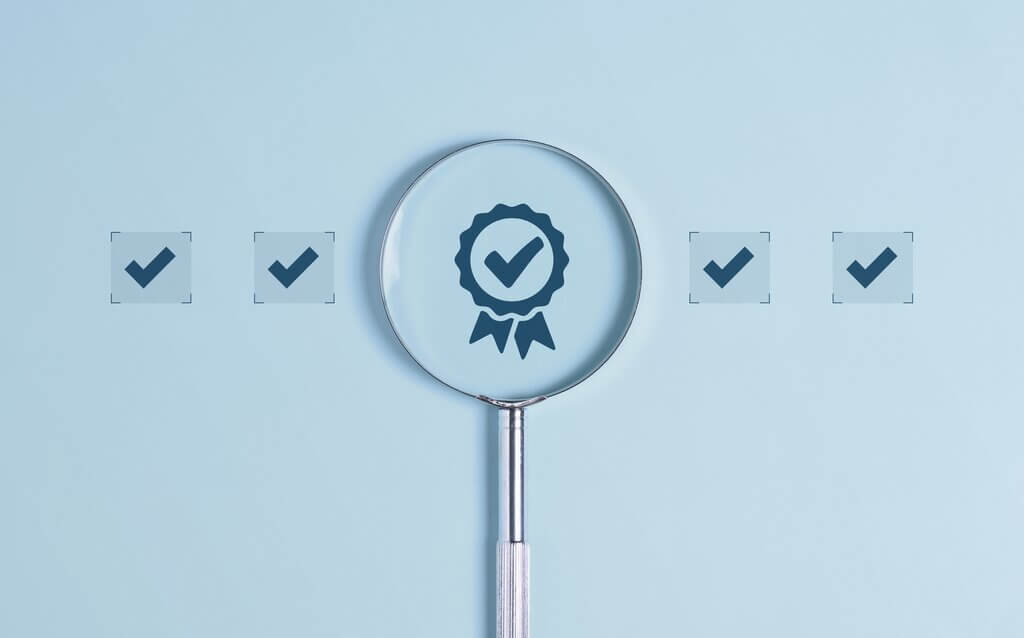a new quality standard for estonian accounting firms: erk recognition
How can e-residents ensure they are working with quality, certified accountants in Estonia? Introducing the new industry standard for accounting firms.

Getting the numbers right has always been an essential requirement for successful businesses, from the typical e-resident solopreneur to multinational enterprises. Management accounts provide a wealth of insight, for risk mitigation, decision-making, and strategy. A good accountant can help you plan for the future, recognise risk and opportunity, take prudent decisions, and ensure your business is in good financial and regulatory standing.
No wonder then that the occupation has been professionalised around the world since the 19th century. More recently, accountants have had to adapt to new technologies, become trusted strategic partners, and taken their place at the boardroom table, or in the startup garage. Accountants can also stop you making mistakes which can put your business at existential risk, such as running out of cash, or falling out of compliance. So their advice and expertise is crucial!
In contrast to other countries, Estonia requires minimal financial reporting from companies registered here. The exception is of course the Annual Report, which must be carefully recorded and submitted annually 6 months after the end of the company's financial year. We generally advise e-residents to work with local accountants to help them submit their companies' annual reports. This is to avoid incorrect or incomplete reporting, and to keep their books in good financial health. But how can e-residents ensure they are working with quality accountants in Estonia?
Raamatupidaja: bookkeeper or certified accountant?
What might come as a surprise is that accounting qualifications and professional recognition standards vary around the world. Even more surprising is that, in most countries, anyone can describe themselves and market themselves as an accountant. There is no shared understanding of education and competence, such as might be understood if someone called themselves a doctor or a lawyer.

Margus Tammeraja is Chairman of the Board at Association of Estonian Accountants. The profession of Accounting is referred to in Estonian as 'raamatupidaja', although this term covers a broad spectrum, from bookkeeper to accountant.
Tammeraja graduated as an accountant from Tallinn Technical University back in the Soviet times, and has his own accounting firm, Robby&Bobby, employing 17 people, and specialising in work with eCommerce clients.
He has seen many examples of practitioners listed under the same accounting code in the Estonian business register, who are not capable of applying the same level of professional service to their clients, often with serious consequences.
Margus Tammeraja“In Estonia, the government doesn’t regulate in any way, how you keep your books. But if you don’t report, especially if you are a VAT-registered legal entity, then it’s serious. This year, more than 20,000 businesses were already erased from the companies register, for failing to submit their annual report.”
In the US, people can seek out a Certified Public Accountant (CPA), or similarly an ACCA qualified accountant in the UK. But while auditors in Estonia have been professionally regulated since 1999, the accountancy role has not attracted similar scrutiny and standardisation - until now.
A new quality mark for accountants in Estonia
The Association of Estonian Accountants (AEA or Eesti Raamatupidajate Kogu / ERK in Estonian) is recognised by the state. The AEA has introduced a new quality standard to recognise the professional competence of accountancy firms in Estonia. It supervises its awarding to businesses who pass an independent auditing process. Being certified requires a firm to follow a strict Code of Professional Ethics for Accountants approved by the AEA Board.
Rules for becoming an AEA Recognised Accounting Firm include:
- Solvency and Conflict of Interest: Making sure the firm is financially stable and transparent about any possible conflicts with their clients.
- Quality Control and Risk Analysis: Regular checks to make sure the service is good, on time, and without mistakes.
- Liability Insurance: Having insurance to protect against unexpected problems, and indemnities covering the advice they give to their clients.
- Documentation: Keeping good records of work, methodologies, and communications with clients - ensuring advice and decisions are fully logged and auditable.
- Competence and Resource Adequacy: Having staff with the right education and experience, continuous training, using modern tools, and having updated resources.
- Data Protection and Confidentiality: Following strict rules about protecting data and keeping client information secret.
- Enforcement of Money Laundering Prevention Act: Following laws against money laundering, including checking risks and having controls in place.
Further, to qualify for membership, the company has to have appropriate professional certification, or a certified auditor certification, held by employees (or members of the management board), and maintain professional development standards and requirements.
The programme will also not recognise solopreneurs, because they cannot provide the resiliency required to meet the resource adequacy condition indicated in the list above. Nor will it recognise the many who do not possess a level 6 qualification (globally equivalent to a Bachelors degree, specific to the accountancy discipline.)
“That excludes many of the 6,000 entities listed on the business register for accountancy services,” Tammeraja explained, “because sole operators have no cover if they’re off sick, or on vacation. And we will only register those who are professionally qualified and experienced in their professional role.
“In our own practice we have worked with clients who have come from these kind of freelance bookkeepers, typically one person and their cat, who have not updated their professional skills in years. Sometimes these people’s books are really messed up.
“But younger people can be just as bad,” he pointed out, “because they’ve grown up with accounting software doing everything for them. So you ask them about income tax rates for example, or VAT, and they have no idea what the percentages are, they’re used to software that does it all for them!”
ERK Recognition and the e-Residency Marketplace
So far, four firms in the e-Residency Marketplace have achieved the ERK badge of approval, and these are:
As public awareness of the certification increases, the number of certified firms will surely increase. In the meantime, being accepted in the Marketplace itself is an existing recognition of professionalism and quality.
Margus Tammeraja“Like all potential clients, e-residents should be aware of the standards and qualifications of their accountant. If a firm has been recognised by our association, then you can be sure they have the quality standards in place, and that they have enough resources to cater to your needs. But if not, then you need to ask questions, about for example their qualifications, which should be a certification level 6, or at least 5, and also you need to do more diligence around their internal processes.”
He further pointed out that many firms, including his own, are not used to working with e-residents on a regular basis. “We only serve e-residents who fit our very specific business profile, which includes having an active and stable business. The same goes with startups. We’re not so interested in working with people who just want limitless consultancy, whereas often what they really need is a good CFO or in-house solution.”
His words reflect the differentiation that is a natural consequence of the professionalisation of the accountancy industry in Estonia. Specialising in particular niches enables them to provide deeply knowledgeable support to their clients, and give better advice,
It’s the same with the whole e-Residency Marketplace, which has now grown to list 140+ professional practitioners offering a range of business services. Users can search and segment the list according to many different factors, from industries served to customer ratings, to work out which of them will best suit their specific needs and priorities.
Ensuring a transparent, accountable financial ecosystem for e-residents
For all e-residents, the introduction of the ERK Standard by the Association of Estonian Accountants marks a significant milestone of professionalism within Estonia's accounting sector. This move not only ensures that businesses engaging with these certified firms receive top-tier service but also aligns Estonia’s practices with global standards. For e-resident entrepreneurs, this means access to trustworthy and competent accounting services, essential for navigating the complexities of international business and compliance.
As Estonia continues to develop its e-Residency program, the role of certified accountants and sound financial governance generally, becomes increasingly important. The ERK standard will be a benchmark for quality and reliability, assuring entrepreneurs that their financial affairs are in capable hands. It also reinforces Estonia's commitment to enabling a safe, secure and transparent business environment for both its citizens and its global community of e-resident entrepreneurs.
More from e-Residency
- Sign up for our newsletter
- Watch fresh video content - subscribe to our Youtube channel
- Meet our team and e-residents - register for our next Live Q&A

